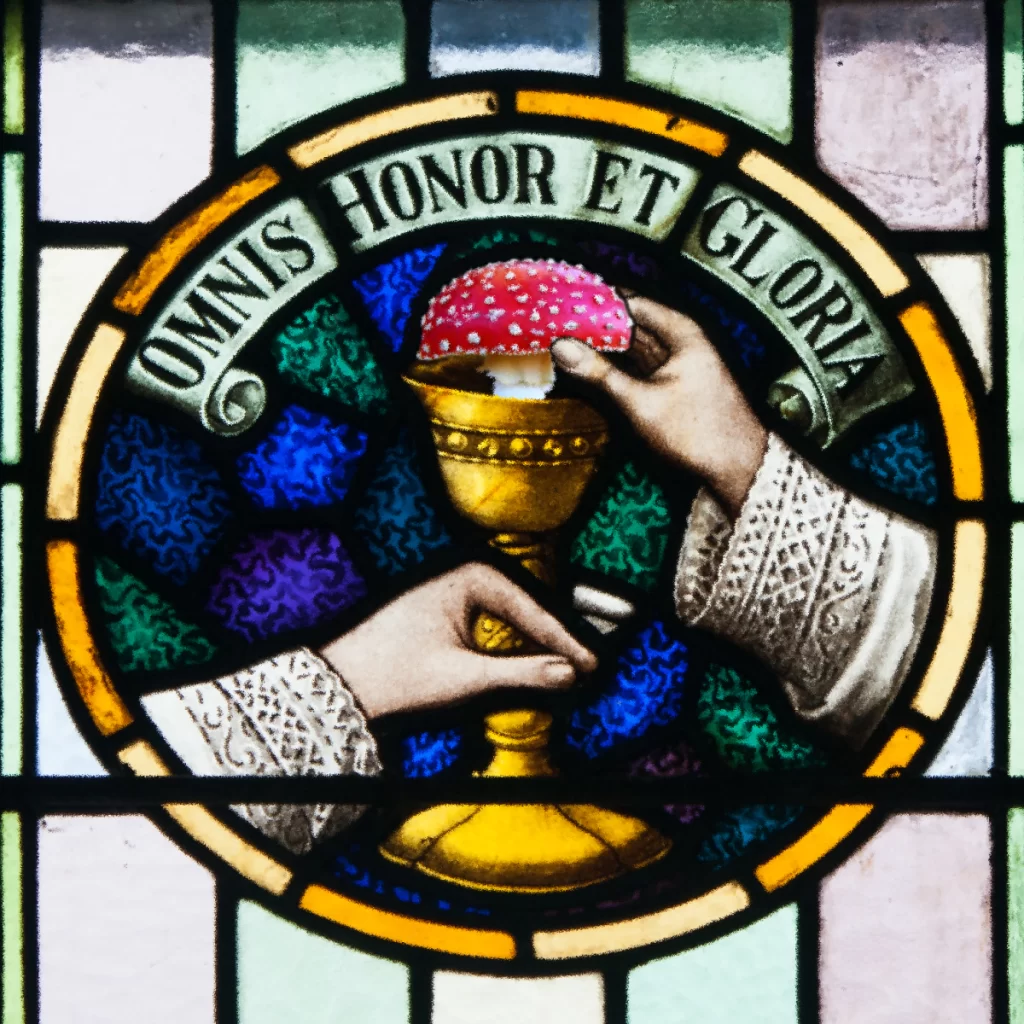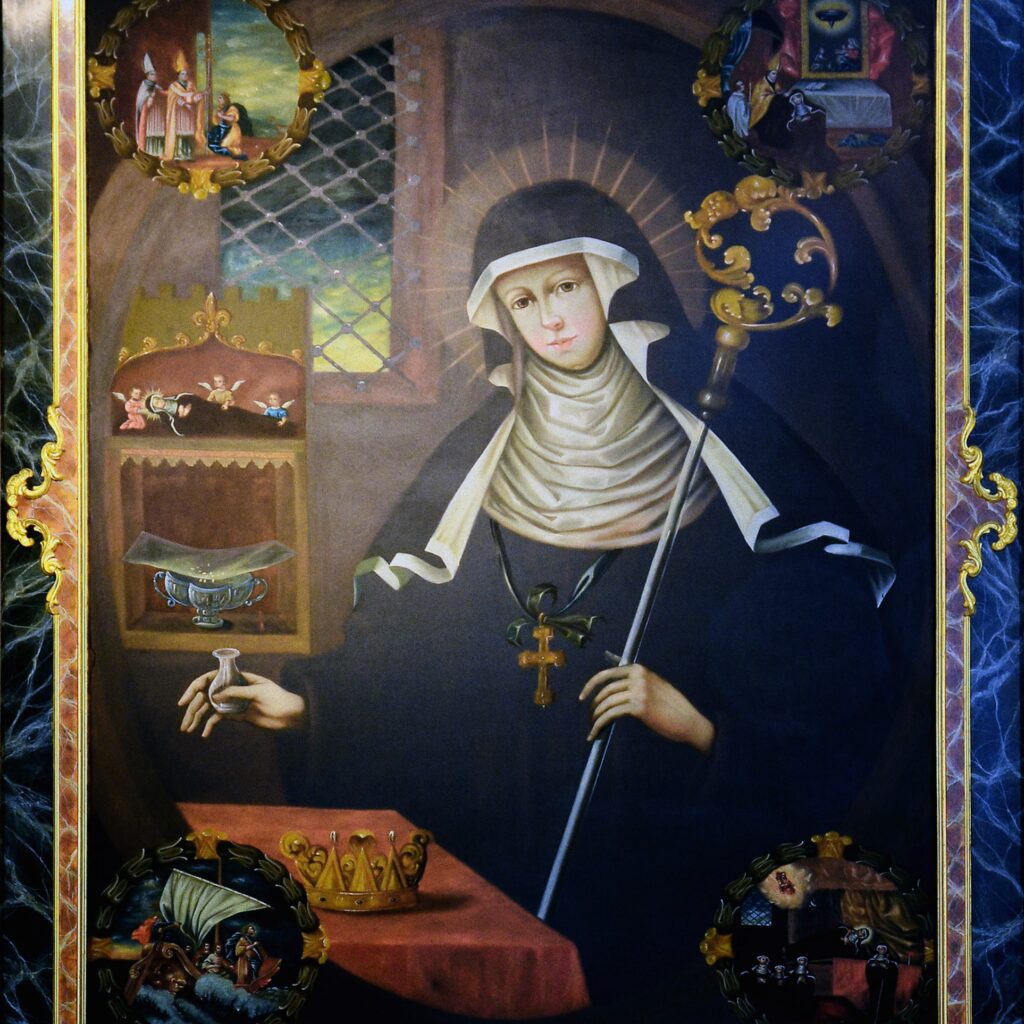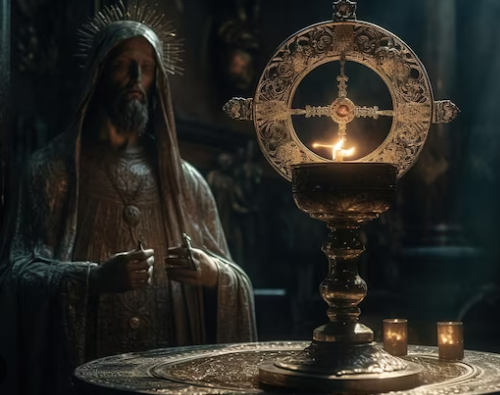
The Eucharistic Mystery Tradition, also known as Catholic Esotericism, represents a rich and complex series of philosophies, spiritual practices, and beliefs that have, for centuries, influenced the societal, artistic, and intellectual spheres of Western culture.
Embodied in various forms of art, literature, and philosophy, the Eucharistic Mystery Tradition remains a critical source of spiritual guidance and inspiration, shaping individual and collective consciousness throughout history.
Rooted in the ancient mystery schools of Dionysus, the Eleusinian Mystery School and mysticism of the Desert Skete, the Eucharistic Mystery Tradition provides a structural framework for the spiritual seeker to explore their identities and situate their roles within the broader context of society and the cosmos.
Because the patriarchy of the Roman Catholic church was increasingly threatened by the critical role that consecrated women played in the Eucharistic Mysteries, Pope Gelasius I found it necessary to revoke the practice of ordaining women as deaconesses, priests and mitered abbesses (bishops) that could be observed in much of the first five centuries of the institutional church’s history.

Mitered abbesses in past centuries, who sometimes exercised a kind of de facto ordinary authority over the ecclesiastical life in the territory surrounding their monasteries, including presiding over the Eucharistic Mysteries.
The most influential religious historian of the twentieth century, Huston Smith, once referred to it as the “best-kept secret” in history. Did the Ancient Greeks use drugs to find God? And did the earliest Christians inherit the same, secret tradition? A profound knowledge of visionary plants, herbs and fungi passed from one generation to the next, ever since the Stone Age?
Before the birth of Jesus, the Ancient Greeks found salvation in their own sacraments. Sacred beverages were routinely consumed as part of the so-called Ancient Mysteries – elaborate rites that led initiates to the brink of death. The best and brightest from Athens and Rome flocked to the spiritual capital of Eleusis, where a holy beer unleashed heavenly visions for two thousand years. Others drank the holy wine of Dionysus to become one with the god.

Brilliantly written about in his groundbreaking bestseller, “The Immortality Key“, author Brian C. Muraresku examines the mysterious links between psychedelic drugs, human consciousness, and the origins of Christianity; tracing the use of psychedelic drugs from Ancient Greece through Rome and into the early days of Christianity, where they played a role—possibly a crucial one — in the new spiritual tradition of Rabbi Jesus the Nazarene.
Within our tradition, this is known as the central tenet of the disciplina arcani — the secret apostolic tradition, passed down in unbroken succession from the original disciples of Rabbi Jesus.
We affirm that the Mystery of Eucharist is the highest form of Spiritual and Personal Communion and Gnosis for a Universal Community to undertake. This sacred truth has long been hidden by institutional religion and the meaning of sacrament has been corrupted to suit a patriarchal and manipulative agenda.

